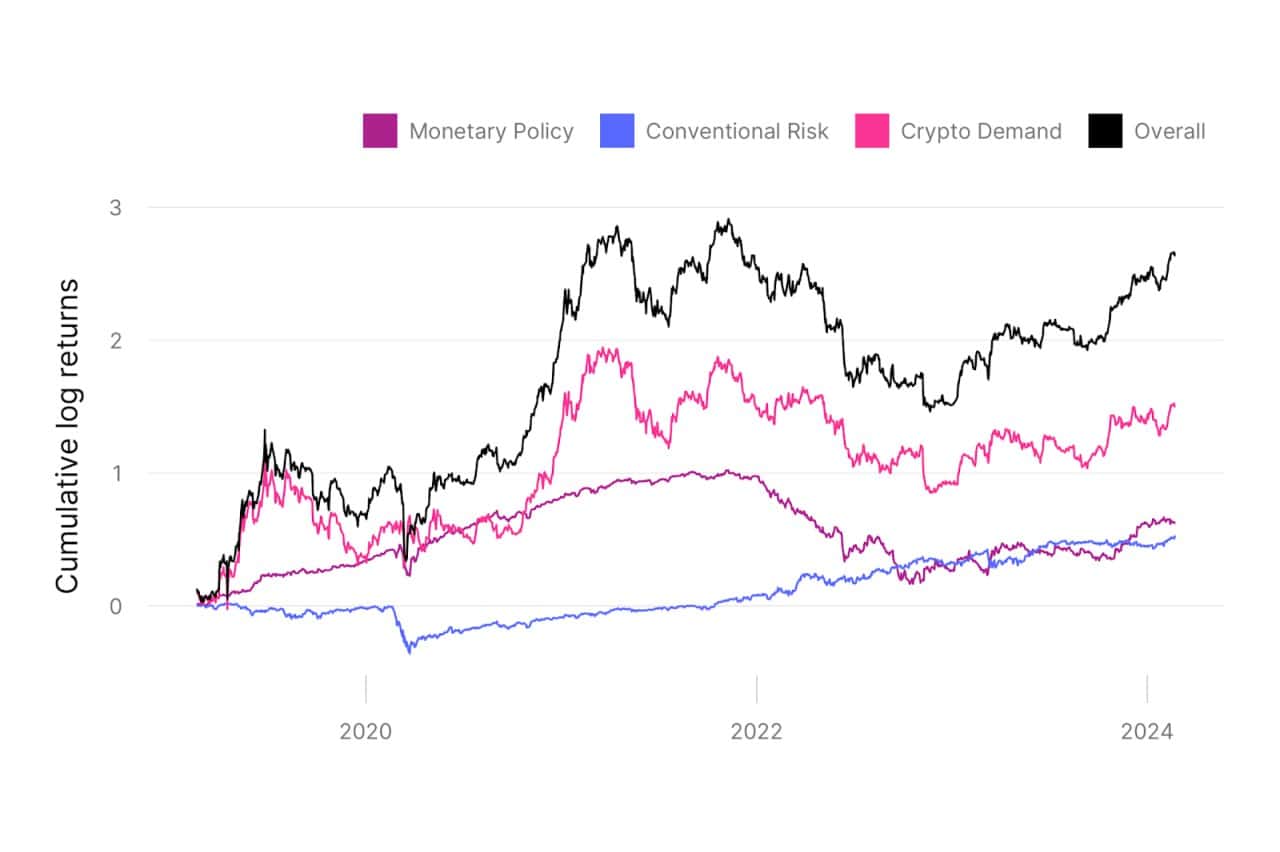The new study has delved into cryptocurrency prices, particularly bitcoin, revealing that markets are significantly influenced by both conventional financial factors and crypto-specific factors.
The paper by Austin Adams from Uniswap Labs, Markus Ibert from the Copenhagen Business School Department of Finance, and Gordon Liao from Circle Internet Financial was published earlier this week.
✨New research ✨
We teamed up with @circle and the Copenhagen Business School to explore what drives crypto asset prices, examining the impact of:
+ Monetary policy
+ Broad market risk premium
+ Crypto-specific demandhttps://t.co/S0FqJGV7vb— Uniswap Labs 🦄 (@Uniswap) July 30, 2024
What Drives Crypto Markets?
The researchers used a “sign-restricted vector auto-regressive (VAR) model” enabling them to examine crypto price fluctuations that come from spillovers from traditional financial markets versus risks inherent to crypto assets.
The new model broke bitcoin returns down into various shocks, including monetary policy, conventional risk premium, adoption, and crypto risk premium shocks. It revealed that monetary policy shocks have a substantial impact on bitcoin prices, especially over longer time horizons.
For example, contractionary monetary policy when the Federal Reserve was raising interest rates accounted for over two-thirds of bitcoin’s sharp decline in 2022 when the asset retreated around 65%.
The crypto contagion caused by the collapse of the Terra/Luna ecosystem and FTX later in the year also contributed to that big bear market.
The research noted that while conventional shocks can have large lower-frequency impacts on crypto prices, “most day-to-day movements in bitcoin prices are left unexplained” by these disruptions.

It also found that when there is turmoil in the crypto market, people tend to move their money into stablecoins, exhibiting behavior similar to how investors might buy gold or government bonds during stock market turbulence.
When BlackRock announced plans for a Bitcoin ETF, the model detected both increased adoption of the asset class and a decrease in crypto-specific risk aversion. In simple terms, this news made people more interested in BTC and less worried about its risks, driving up the price.
Crypto Not Yet Integrated With TradFi
The researchers concluded that while crypto isn’t entirely separate from the broader financial ecosystem, it’s not completely integrated either.
Their findings highlight the importance of identifying drivers of crypto returns and understanding the asset class’s evolving relationship with traditional financial markets.
With a Federal Reserve rate cut expected in September, crypto markets should do well later this year due to increased liquidity and risk appetite. This also aligns with the four-year market cycle, which should see a bull market peak in late 2025 … if history rhymes.
 cryptopotato.com
cryptopotato.com